2nd October is celebrated as Gandhi Jayanti to mark the birthday of Mahatma Gandhi. But it is also the birth date of another great Indian leader – Lal Bahadur Shastri – India’s 2nd Prime Minister.
Presenting two stories about these two great men for my little readers today. Incidentally, both stories relate to theft.
GANDHI’S WATCH GOES MISSING
In February 1947, British Prime Minister Clement Atlee announced that Britain would leave India soon and sent Lord Louis Mountbatten as the last Viceroy to work out the modalities of transfer of power.
When Lord Mountbatten arrived in India in March 1947, he first decided to meet the top Indian leaders in order to assess the ground-situation.
One of the leaders he was keen to meet immediately was Mahatma Gandhi who was at that time, touring riot-torn areas in Bihar. The Viceroy asked Gandhi for a meeting and offered to send his personal aircraft to fetch Gandhi to Delhi.
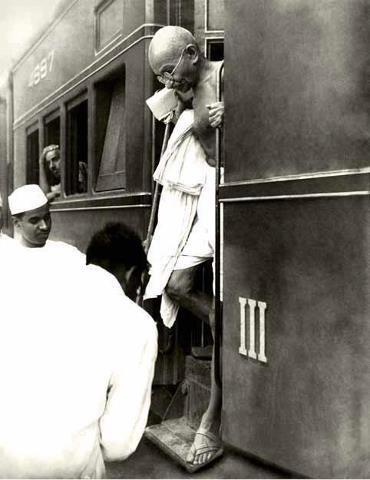
Gandhi declined the offer and insisted on travelling by a 3rd class railway carriage – as he always did.
When he finally arrived in Delhi, and paid the Viceroy a visit, Mountbatten found Gandhi a tad upset.
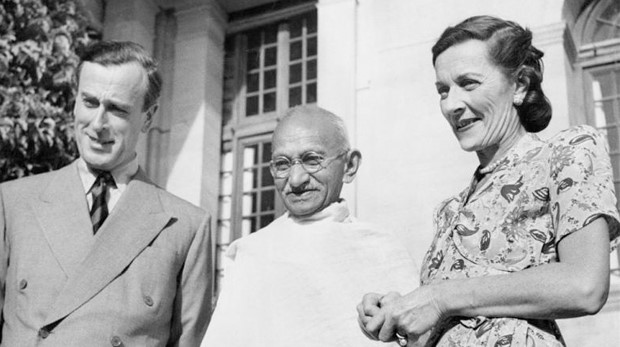
‘Is something wrong?’ Lord Mountbatten asked Gandhi.
“All my life,” Gandhi responded with a sigh, ‘I have renounced physical possessions.’
It was true that Gandhi owned little more than a copy of the Bhagwat Gita, some tin utensils and a few mementos. Amongst the few things he owned was an 8-shilling Ingersoll watch that he usually hung from a string around his waist.
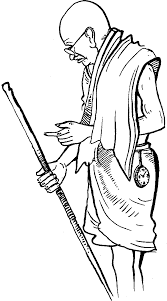
With a deep sadness he said ‘Someone stole my watch in the train as I was on my way to Delhi.’
Looking at Gandhi’s moist eyes, the Viceroy realized it wasn’t the stolen watch that was troubling Gandhi as much as the act of theft which went against everything that he stood for and taught. His values and teachings, Gandhi was slowly growing to realize, were becoming irrelevant. Indians had turned on each other in vengeance as communal violence was tearing through Punjab, Bihar and Calcutta. In those days, Gandhi found himself a sad lonely man.
Cut to September 1947 – a month after independence.
A young stranger appeared at Birla House in New Delhi, where Gandhi was residing. ‘I wish to meet Gandhiji,’ he said.
‘Who are you? And what work do you have with Bapu?’ Gandhi’s secretary asked the man.
‘Please…I can only inform Gandhiji…please let me see him,’ the man pleaded.
‘Look…you need to tell me what work you have with Gandhiji…he is very busy.’
Pressed repeatedly, the man finally revealed why he had come to meet Gandhi.
‘A few months ago, I ….I had stolen Gandhiji’s watch in a train…’ he confessed awkwardly. ‘I have come to return it and ask for Bapu’s forgiveness. Will Bapu forgive me?’ he asked hesitantly.
‘Are you joking?’ exclaimed the secretary with a smile, leading the man in. “Gandhiji will embrace you!”
The young man was taken inside to see Gandhi. He sat down nervously beside the Mahatma and whispered into his ears.
As Gandhi saw the man pull out his lost watch, a childish smile appeared on his face. Just as Desai had predicted, Gandhi embraced the man, delighted to bits like a little child who had recovered a lost toy.
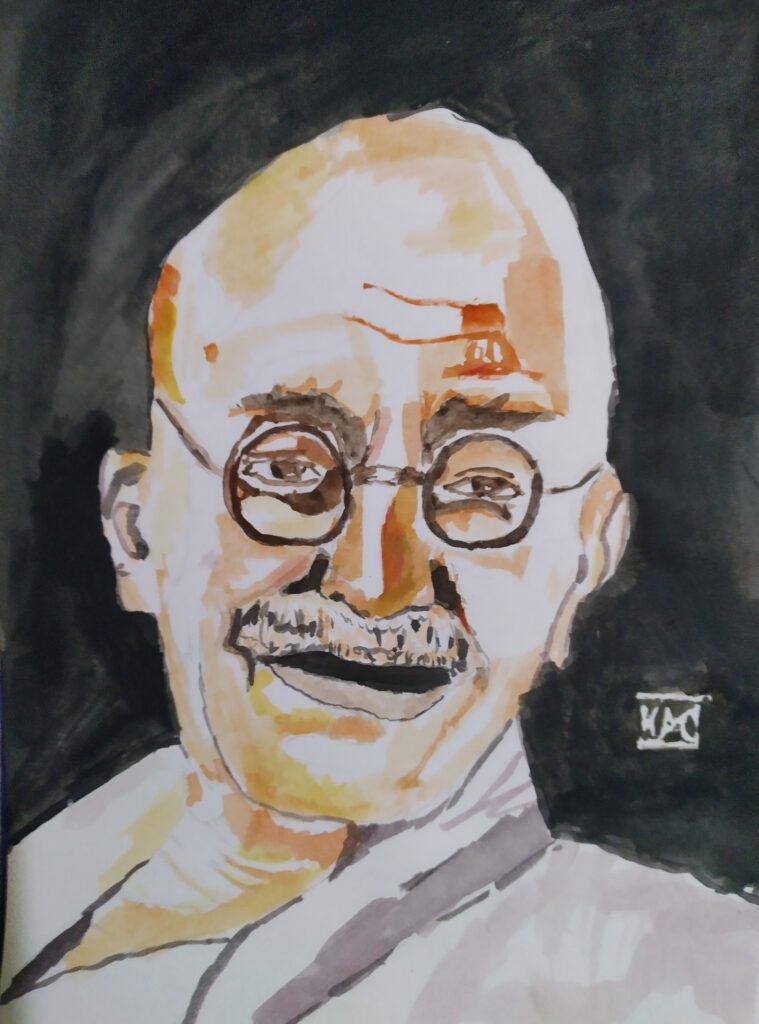
‘I am sorry,’ the man apologized profusely, feeling deeply remorseful for what he had done.
Gandhi pat him on his back and called all his followers to see his watch. And then he introduced them all joyfully to the prodigal son who had mended his ways by admitting his mistake and returned his stolen watch.
LAL BAHADUR STEALS MANGOES
This story is about India’s second Prime Minister – Lal Bahadur Shastri (The term Shastri was not part of his original name. It was added later on after he finished his education to denote his learning) when he was a young boy growing up in the town of Mughalsarai in north India.
Like most children, he loved mangoes. When the summer season was about to begin, Lal Bahadur and his little friends couldn’t wait to go mango-plucking from orchards around the village.

Once, as he and his friends were climbing a tree to pluck some ripe mangoes, the farmer who owned the land happened to see them and came chasing after them. The boys made an escape but Lal Bahadur got caught.
“Please forgive me chacha,” Lal Bahadur cried, “I’m sorry.”
“Useless fellows! the farmer fumed, twisting the boy’s ears. ‘Don’t you have anything better to do?’
“Please let me go,” little Lal Bahadur pleaded, “I do not have a father.”
His father had passed away when he was very young and the boy lived with his mother and siblings at his maternal grandparents’ place and they were not well-off.
This softened the farmer slightly and he stopped reprimanding the boy. He let him off with a passing remark “If you do not have a father, you ought to be behaving more responsibly and taking charge of looking after your family instead of running about stealing mangoes!”
Young Lal Bahadur was alarmed at the farmer’s words. It stirred something within him – a sense of duty and greater purpose.
It is said this incident became a turning point for young Lal Bahadur. As he grew into a young boy, he decided to follow Gandhi and devote himself to the nation.
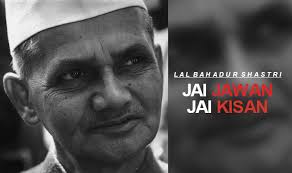
Often what I find interesting about historical characters, is not merely the large-scale macro events that History books keep talking about, but also small incidents that throw light upon a facet of people’s personalities. Both these stories about the two men born on 2nd October, relate to incidents of theft and how they dealt with it. And both stories reveal an interesting slice of these fascinating leaders.
For Gandhi – the theft of his watch meant an erosion of the values he stood for. And its recovery brought on great joy and instant forgiveness. For Shastri – a minor childhood incident involving a theft of mangoes, transformed his personality and life.
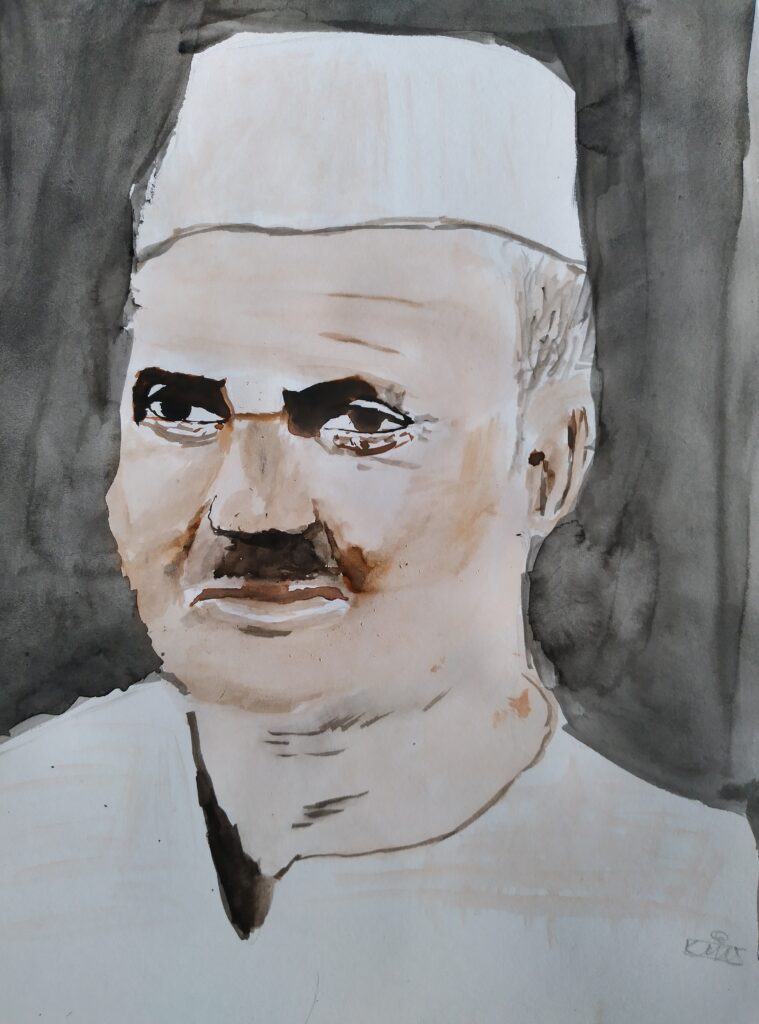
What about you? Have small minor incidents led to a major change in your life or thinking? A nice thought for some introspection 🙂
[PS – I often get asked about the illustrations and sketches accompanying my blog posts. These lovely water-colours of Gandhi and Shastri here are by my son Karthik Shashikanth (9 years old currently) who is a keen budding artist. He loves to draw. I love to write. Our skills complement each other well 🙂 And for this post, I must thank my other son Kabir too who reminded me of the two birthdays on this date.]
LOOKING FOR MORE ON GANDHI? CHECK THE LINKS BELOW
Gayatri N
November 18, 2020 - 11:02 pm ·Thoughtful and thought-provoking as usual, Mallika! Thank you for sharing such delightful gems from history. Bravo to Karthik – especially for Shastriji’s portrait!
mallikaravikumar
November 26, 2020 - 8:38 pm ·Thank you Gayatri! So sweet of you to read and subscribe and leave a comment. Will convey to Karthik. Thank you 🙂